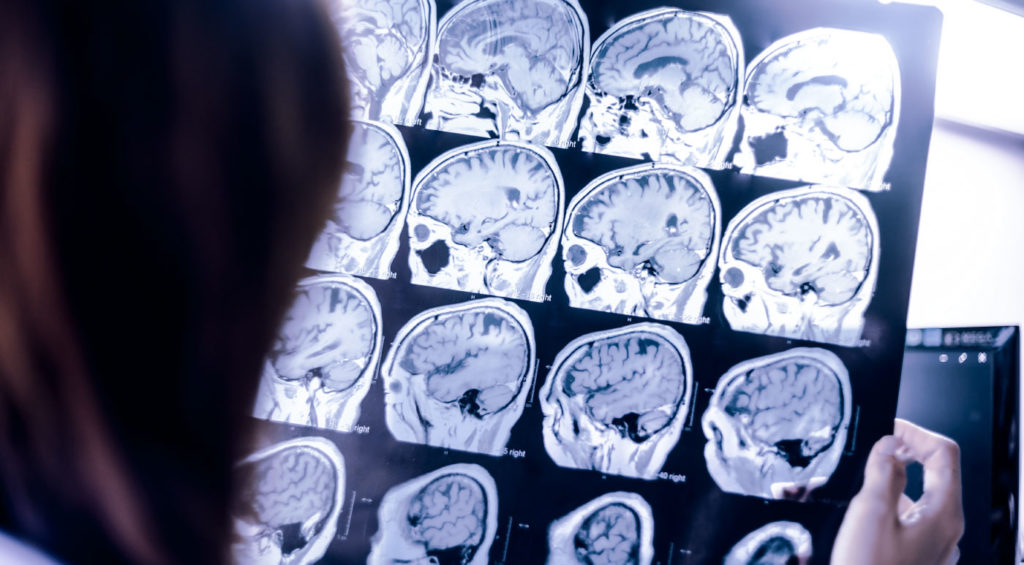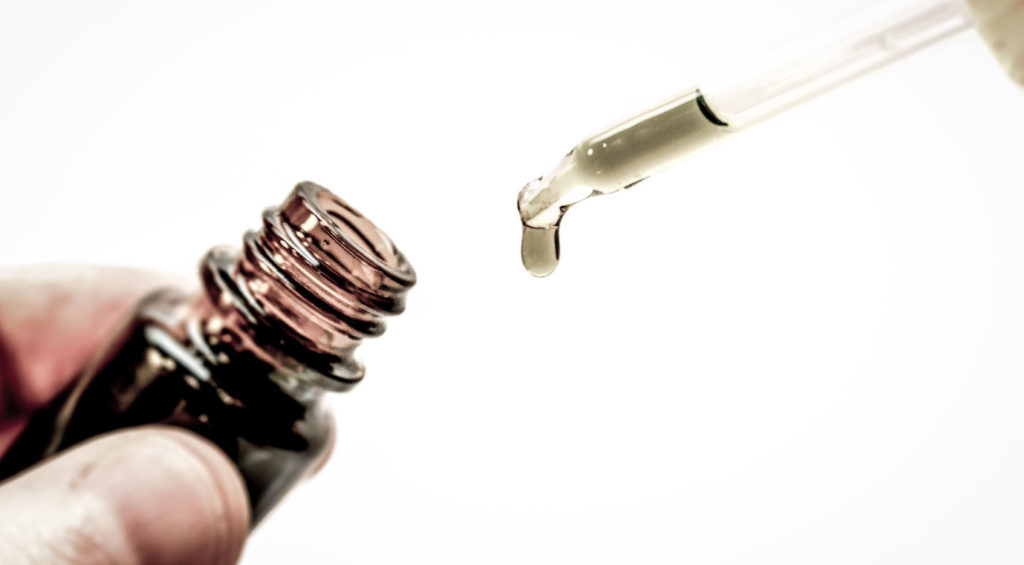
The prospect of facing dementia as we grow older is scary and intimidating. Imagine being in a state where you don’t remember the people closest to you, you don’t understand what’s going on around you, and you are unable to do the simplest things for yourself.
Dementia is an umbrella term that describes a decline in cognitive function that is severe enough to interfere with the activities of daily life or the quality of life. The most common symptom is memory loss, which is often noticed first by a partner, family member, or friend.
Other common dementia symptoms have to do with language and communication difficulties (such as finding the right words), trouble concentrating, and problems with reasoning and making decisions.
Because research has shown that CBD may protect the nervous system, some scientists are now investigating the effectiveness of taking CBD for dementia. Before we explore how CBD might help with the symptoms of dementia, let’s take an overview of what dementia is and how it affects the endocannabinoid system.
Table of Contents
- What Is Dementia?
- Endocannabinoids and Dementia
- Can CBD Help With Dementia?
- Research on Taking CBD for Dementia
- Is It Safe to Take CBD for Dementia?
- Taking CBD for Dementia: A Summary
What Is Dementia?
Dementia is divided into seven stages:
- Stage One: normal cognitive function
- Stage Two: Very mild signs of cognitive decline, the sort of issues anyone of any age might experience. By themselves, these signs may mean absolutely nothing.
- Short-term memory changes or difficulty remembering (eg. where are my keys?)
- Difficulty in finding the right word or the word you are looking for
- Unexplained mood changes
- Confusion
- Apathy
- Difficulty following the details or timeline of a narrative
- Confusion
- Difficulty completing or starting normal tasks
- Difficulty with sense of direction or increased frequency of getting lost
- Stage Three: Signs of decline go from very mild to mild and may happen more frequently
- Stage Four: Moderate cognitive decline
- Stage Five: Moderately severe signs of cognitive decline
- Stage Six: Severe dementia with extensive memory loss
- Stage Seven: Very severe cognitive decline, with little to no ability to communicate or take care of basic needs
There are several different causes of dementia, and while some are treatable, some are not. Treatable causes include traumatic brain injury, brain tumors, infections, hormonal disorders, adverse effects of medications, fever, metabolic disorders, poor nutrition, and others.
However, most cases of dementia are not treatable and are due to degeneration of portions of the brain that control thinking, memory, movement, emotion, and personality. Alzheimer’s disease (AD) is the most common of the degenerative dementias. In AD, abnormal protein deposits form tangles throughout the brain, disrupting nerve signals and causing the death of nerves. Overall, the brain actually begins to shrink in size.
Other irreversible dementias include vascular dementia and dementia caused by Parkinson’s disease, dementia with Lewy Bodies, Huntington’s disease, Pick’s disease, or Creutzfeldt-Jakob disease.
Endocannabinoids and Dementia

The endocannabinoid system is a biological system in which endocannabinoid compounds bind to one of two receptors, CB1 and CB2, much like keys fit within locks. We can thank the cannabis plant for the discovery of the endocannabinoid system—it was during research into how cannabis products affect the body that the endocannabinoid system was discovered.
In the brain, natural endocannabinoids play a role in the regulation of memory, the perception of pain, muscle coordination, and the response to stress. In the rest of the body, the endocannabinoids help regulate the immune, muscle, and cardiovascular systems.
Anecdotal evidence has long suggested that cannabinoids can provide some symptomatic relief in various types of neurodegenerative diseases, including dementia. Essentially, this anecdotal (and some preclinical) evidence indicated that the endocannabinoid system was underactive in these conditions.
In Huntington’s disease, for example, the absolute numbers of the CB1 receptor appears to be decreased. In AD, the numbers of CB1 receptors is also reduced, though in some studies, the number appears unchanged. This is important because CB1 receptors are most prominent in the brain (CB2 receptors are more prominent in other areas of the body).
The current thinking is that some inflammatory process induces the pathology in these neurodegenerative disorders, including dementia. The endocannabinoids, including 2-AG and AEA, are often increased, which might be the body’s attempt to compensate.
Can CBD Help With Dementia?

CBD has a variety of effects that may potentially play a role in preventing or treating dementia. We know that CBD can:
- Reduce pain
- Reduce inflammation
- Reduce muscle spasms
- Reduce anxiety and depression
- Have anti-psychotic effects
- Lower blood pressure
- Protect the nervous system
The last effect—protecting the nervous system—as well as the anti-inflammatory and increased blood flow effects of CBD, may be important in understanding the potential benefits of CBD for dementia patients.
Research on Taking CBD for Dementia
Most of the current studies on the potential of CBD to help with dementia have been done in cell cultures or in animal models of AD.
These studies are promising: CBD was able to protect neurons with a combination of anti-inflammatory and blocking effects to “rescue” affected neurons. CBD (and THC) were able to reduce nerve cell death.
Another study indicated that CBD may help protect against dementia by increasing blood flow to the brain.
In AD, at least part of the problem may be the inflammatory cell messengers released by specialized brain cells, the microglial cells. These cells have both CB1 and CB2 receptors on their surfaces. CBD appears to block the inflammatory actions of these cells—so in theory, at least, this blocking action might reduce the inflammation seen in AD brains.
In animal models of AD, mice treated with injections of CBD had reduced inflammation in affected neurons. Another study by the same group showed the CBD could in fact stimulate new nerve cell growth in at least one part of the brain.
The results in the lab and in animal models have been promising enough that research is progressing and clinical studies are moving forward. A recent review concluded that “The studies reviewed in this mini review provide ‘proof of principle’ for the therapeutic benefits CBD and possibly CBD-THC combinations pose for AD therapy…”
Another aspect of dementia that is closely related to inflammation is oxidative stress. Oxidative stress can be thought of as inflammation within cells, and it occurs within brain cells due to a disease or as a response to stress (or both). CBD is well-known to be an effective antioxidant, so it could help combat this oxidative stress.
In Parkinson’s disease (PD), there is a significant amount of research on the potential benefits of CBD. One study concluded that “preliminary data suggest that CBD may be effective, safe, and well tolerated for the treatment of the psychosis in PD.”
Is It Safe to Take CBD for Dementia?

Overall, CBD is very safe and well tolerated for most people. According to the World Health Organization (WHO), there is little or no risk of dependence or abuse.
Side effects are generally mild, and commonly include diarrhea, nausea, and bloating. In people with dementia, however, these may be more significant side effects, particularly for a caregiver.
CBD has no psychoactive effects—and in fact, tends to calm aggressive or difficult behaviors. A clinical trial is currently underway examining whether CBD can calm dementia-related agitation.
CBD can be inhaled, sprayed into the mouth, or taken as drops under the tongue or as capsules. Inhalation is the fastest way to take CBD, but may also pose some hazards for the lungs and respiratory system. Placing CBD drops under the tongue or spraying CBD oil into the mouth are relatively fast dosage options as well.
Taking CBD for Dementia: A Summary
While CBD has not been fully tested in dementia patients, lab results and those from animal studies are very promising. CDB has an excellent safety profile. If you choose to try taking CBD, the general “rule of thumb” is to start with low doses and slowly increase the dose until you see results.
If you’re a caregiver for someone with dementia, it may be worth speaking with their doctor about whether CBD could help alleviate some of their symptoms.
